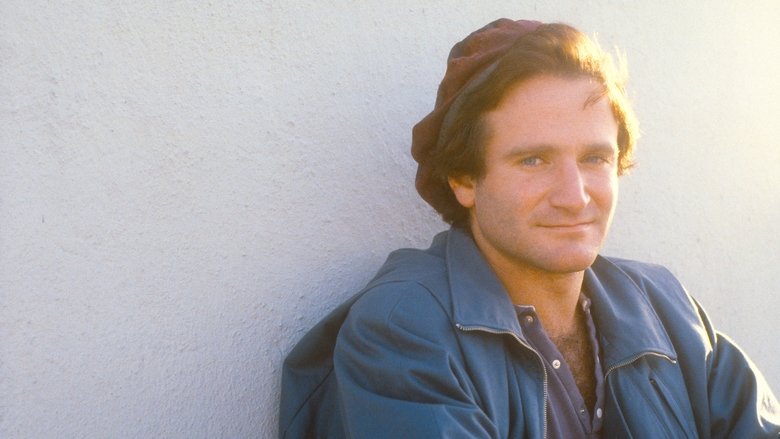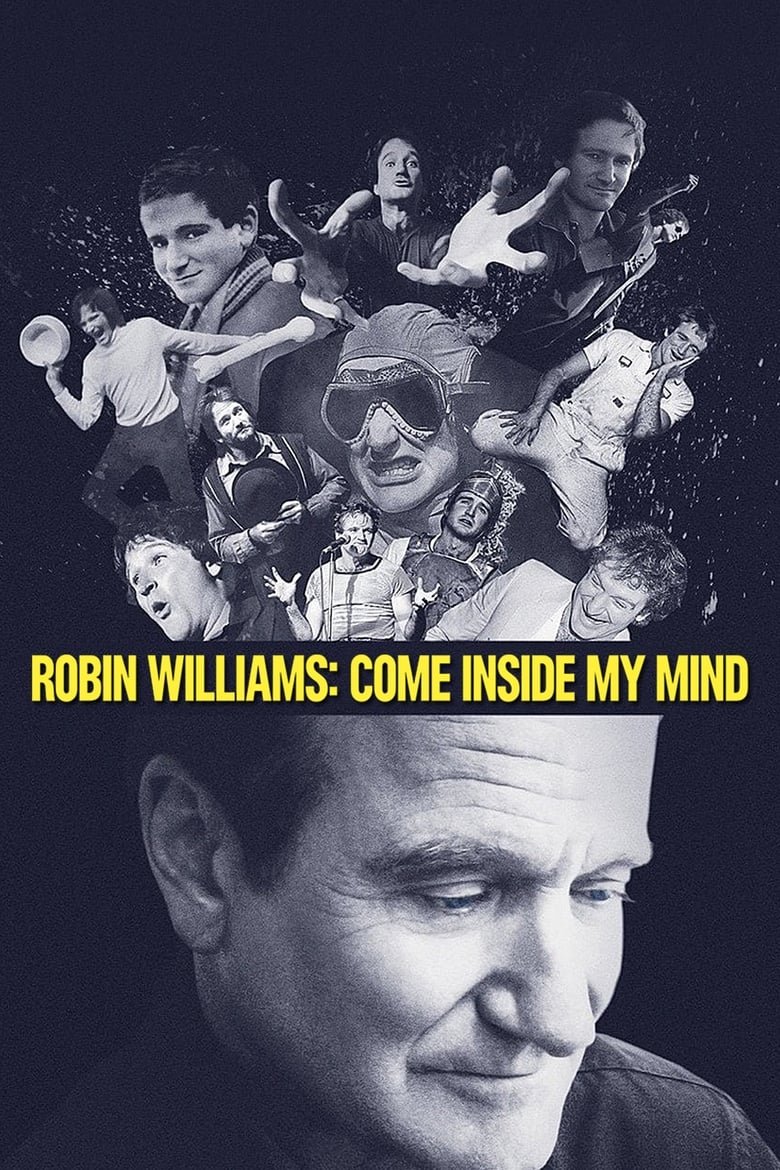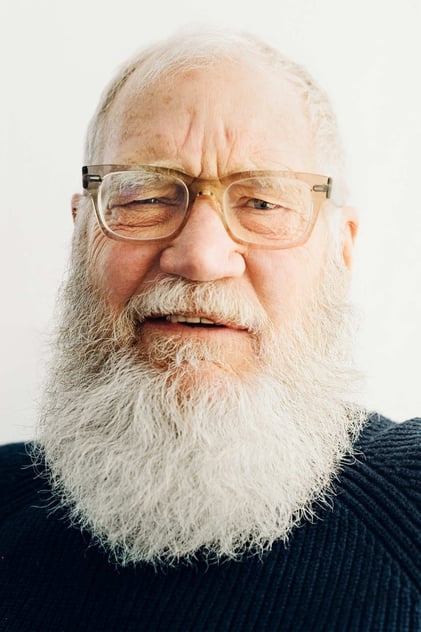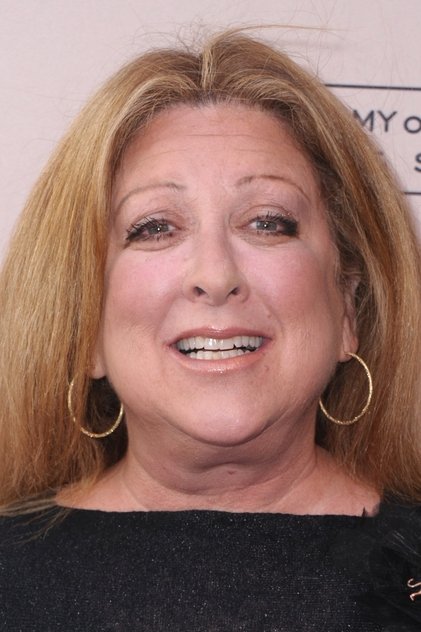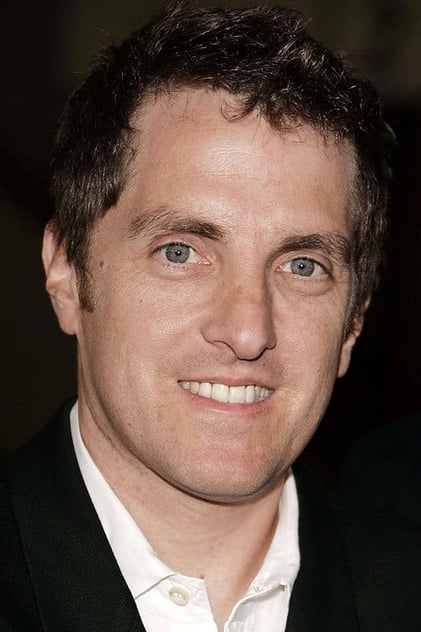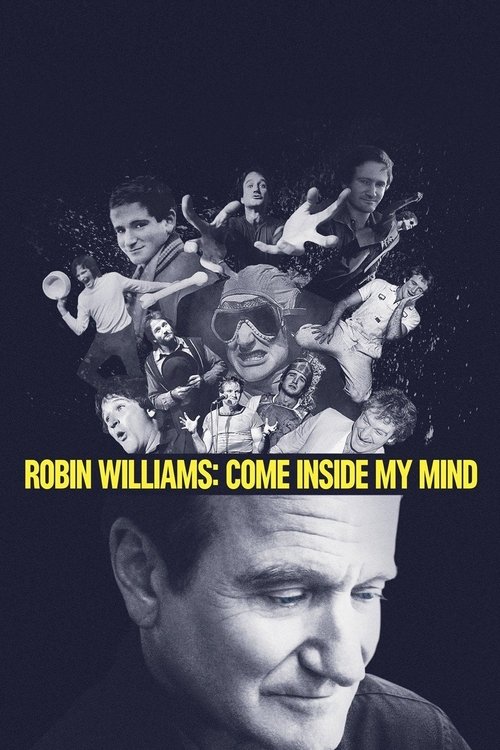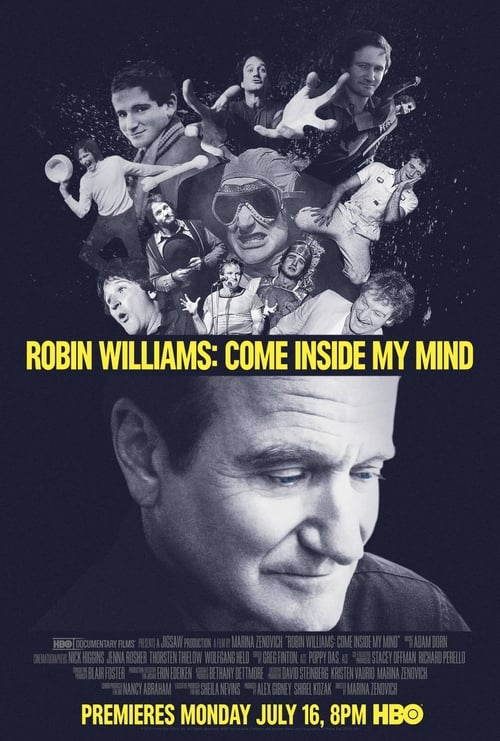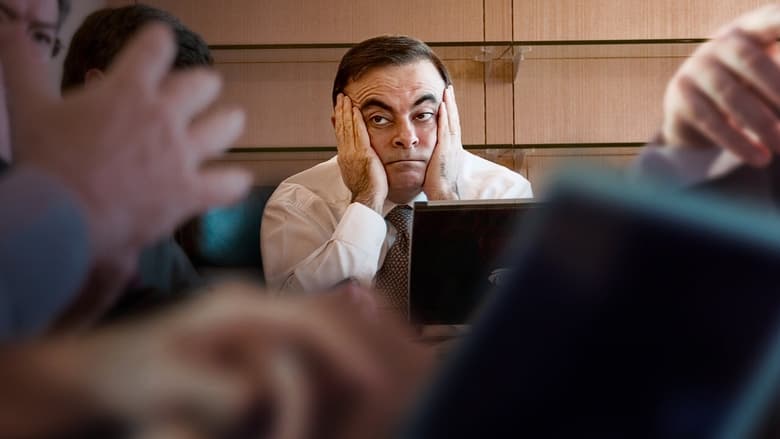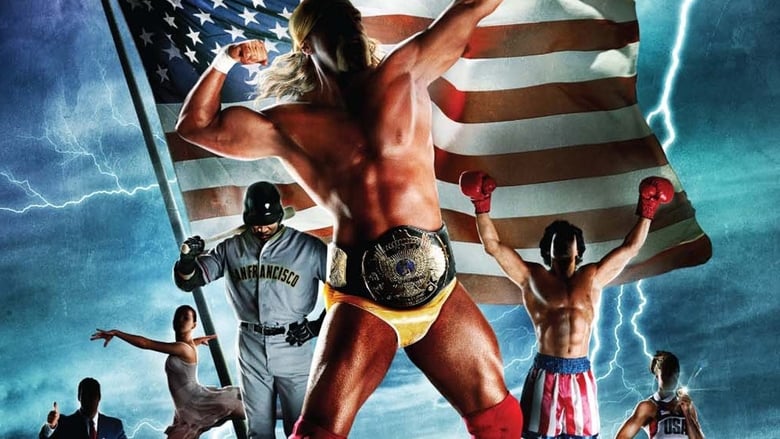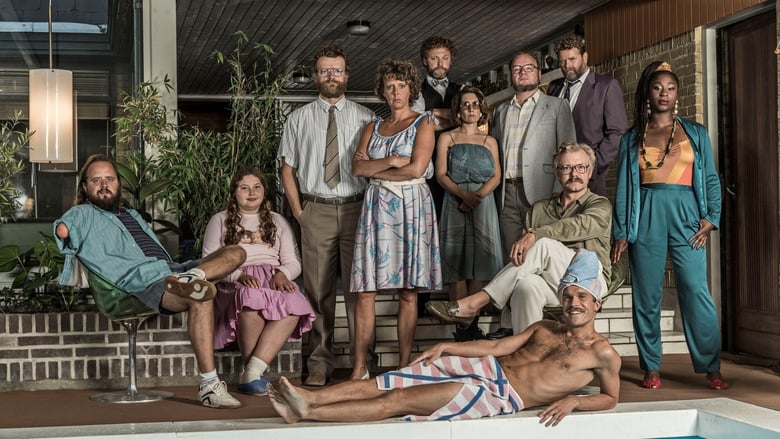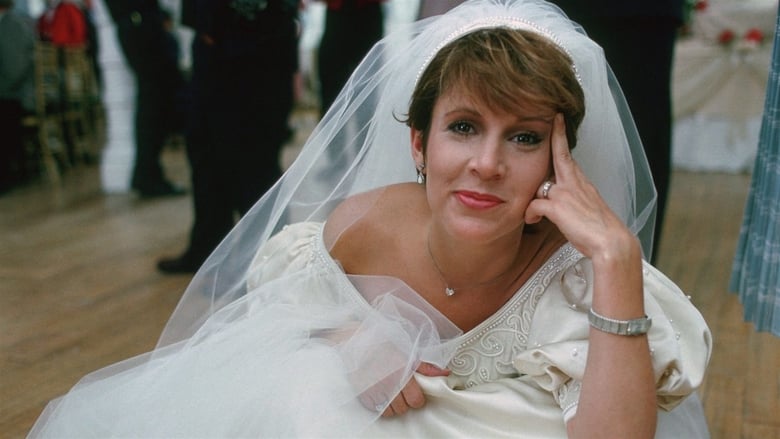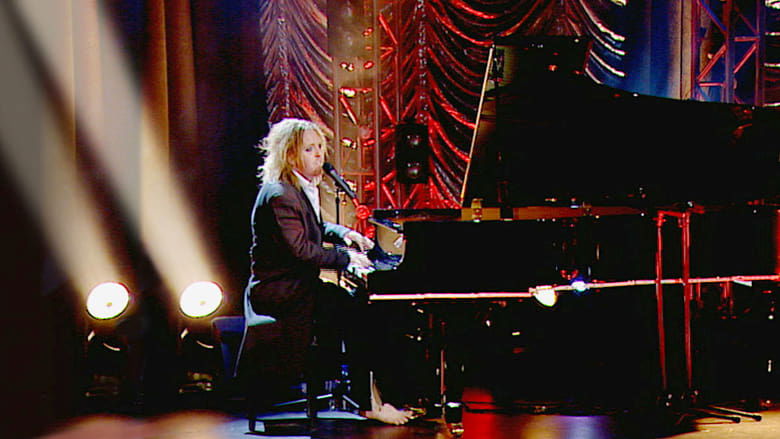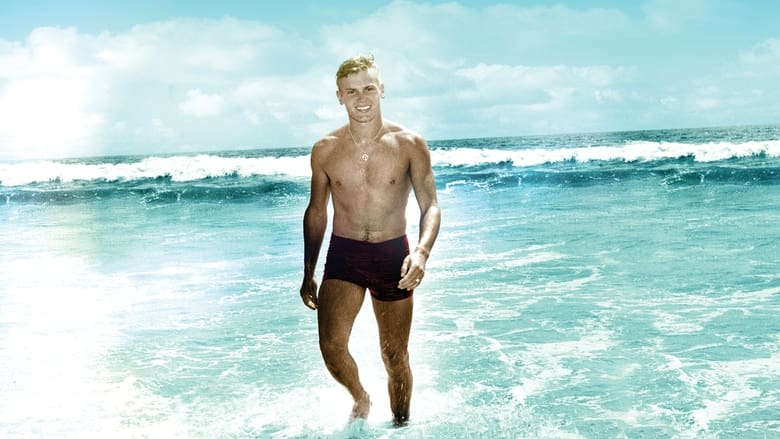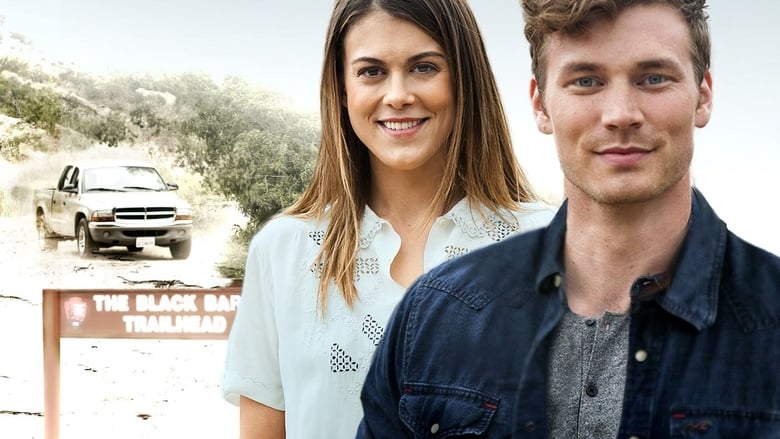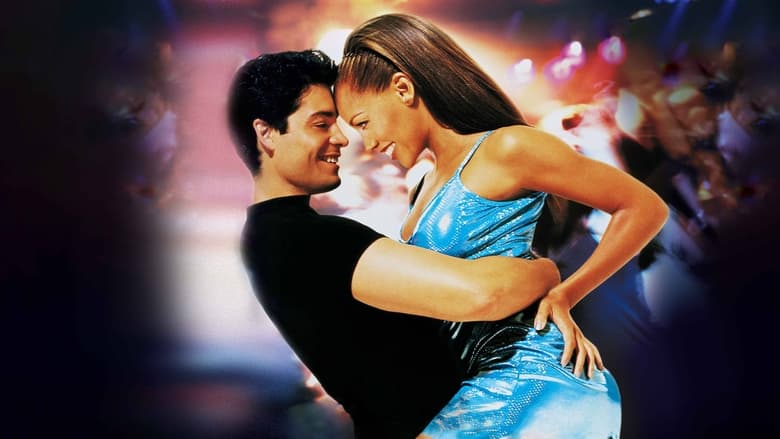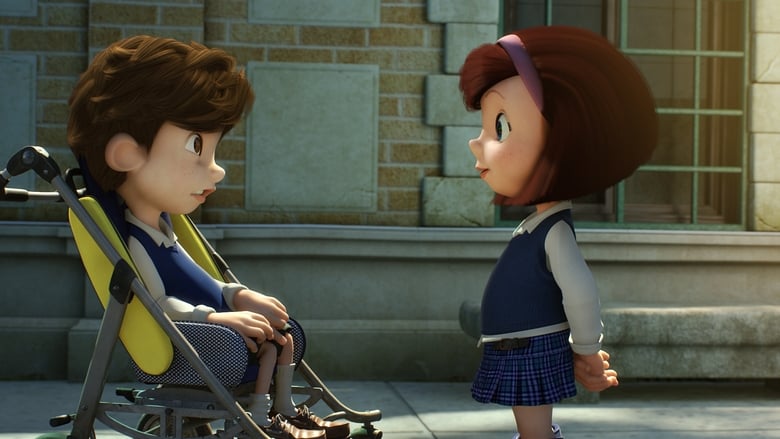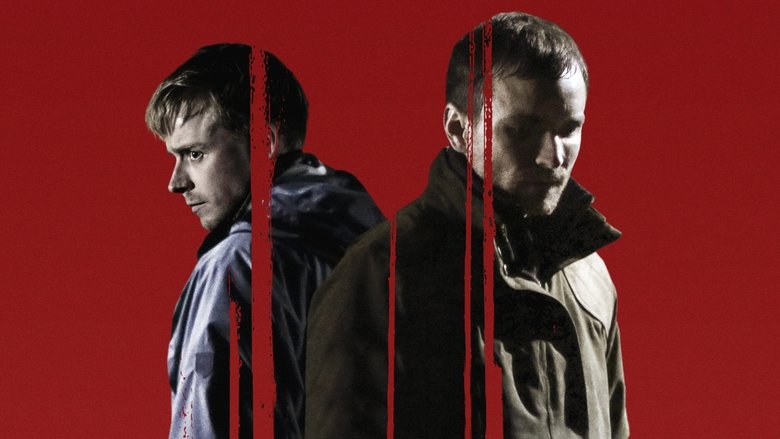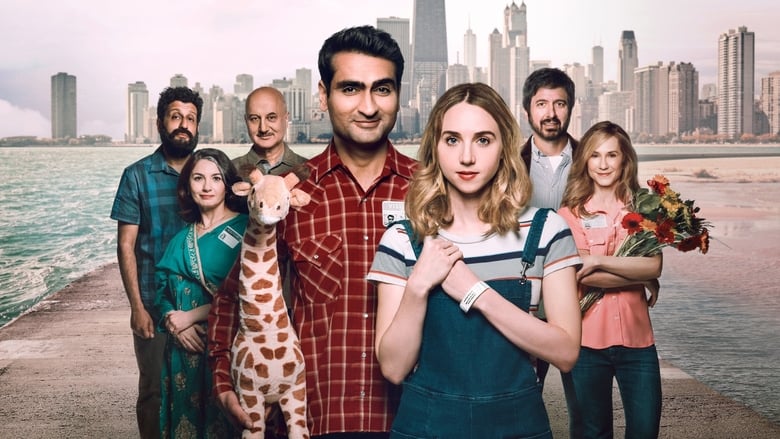Stephen Campbell
Oct 7, 2019
7/10
- Robin Williams
- David Letterman; Late Show with David Letterman (August 19, 2014)
The brilliance was astounding, the relentless energy was thrilling. I used to think that if I could just put a saddle on him and stay on for eight seconds, I was going to do okay ... Well, as genius as he was onstage, he was the greatest friend you could ever imagine - supportive, protective, loving. It's very hard to talk about him in the past because he was so present in all of our lives. For almost 40 years, he was the brightest star in the comedy galaxy. But while some of the brightest of our celestial bodies are actually extinct now, their energy long since cooled, but miraculously, because they float in the heavens so far away from us now, their beautiful light will continue to shine on us forever. And the glow will be so bright, it'll warm your heart, it'll make your eyes glisten, and you'll think to yourselves, "Robin Williams, what a concept".
- Billy Crystal; 66th Primetime Emmy Awards (August 25, 2014)
a nuclear bomb - it's basically a man's way of saying, "I'm gonna fuck up the Earth, yeah." A woman would never make a nuclear weapon. They would never make a bomb that kills you. They'd make a bomb that makes you feel bad for a while. It'd be a whole other thing. That's why there should be a woman president. Don't you see? That'd be a wonderful thing. Be an incredible time for that. There would never be any wars, just, every 28 days, some intense negotiations.Other outstanding moments, feature his hilarious improvised "acceptance speech" at the 2003 Critics Choice Awards, where he was nominated for Best Actor alongside Jack Nicholson and Daniel Day-Lewis, and the result was declared a draw between Nicholson and Day-Lewis. Invited on stage by Nicholson (who actually takes his sunglasses off after Williams jokes about him wearing them indoors), he launches into an increasingly bitter (and increasingly funny) speech ("thanks for nothing. It's a tie with three people! It's so nice to have nothing leaving here, I don't have to thank anybody. You pretty much said, "Fuck you, Robin!" Thank you, I hope that's televised!"). His speech culminates when Nicholson and Day-Lewis give him the envelope with their names on it, and he says, >I want to thank Jack Nicholson and Daniel Day-Lewis for giving me this piece of paper. It has their names on it, not mine, and I'm glad to be left out of this incredible group. I want to thank Jack, he is to me, the greatest actor, and Daniel Day-Lewis, also the greatest actor. And I'm just a hairy actor. It's been a wonderful evening for me, to walk away with nothing; coming here with no expectations, leaving here with no expectations. It's pretty much been a Buddhist evening for me. Funny stuff. Also shown is his bit on the evidence that God gets stoned ("look at the platypus"), and Comic Relief VI in 1994, where he gives an improvised performance as, first, Billy Crystal's penis, and then Whoopi Goldberg's vagina. The film also tosses out some interesting facts. For example, his father was a very stern man, and it was when a young Williams saw him laugh at Jonathan Winters, that he first began to consider a career in comedy, where he too could make people laugh. The film also features footage of Winters improvising with a stick on a 1964 episode of Tonight Starring Jack Paar, a bit not entirely dissimilar from Williams's own aforementioned stick-based improvisations on Sesame Street. Also fascinating is that when Williams started filming Mork & Mindy in 1978, all American sitcoms were shot with a basic three-camera set-up. Introduced by cinematographer Karl Freund when he began work on I Love Lucy in 1951, this set-up uses three cameras recording simultaneously at three different angles (one captures the wide shot, and the others capture close-ups). However, due to Williams's unpredictable improvisational style, when shooting Mork & Mindy, he would rarely stick to his marks, making it virtually impossible for close-ups, as the camera operators never knew where he was going to end up (he was a pioneer at doing on TV what theatre actors usually refer to as "exploring the space"). And so, the show's creator and executive producer Garry Marshall introduced a fourth camera, whose sole purview was to follow Williams as he moved about the set, fundamentally changing how sitcoms were shot. The use of audio interviews with Williams, which essentially act as narration, see him more contemplative. In one clip, for example, he explains, "a character can be a comic actor more than a comedian. I don't tell jokes, I use characters as a vehicle for me. I seldom just talk as myself." Which is, of course, a key admission, and which is one of the main themes of the film – the public and private were not only differentiated, they were, in many ways, diametrically opposed. However, this brings us to one of the film's main failings - the lack of exploration of the dissonance between these two aspects of his personality (the manic public comedian and the pensive private man); it's touched on a few times, but it's never explored in any detail. Indeed, for a film which literally invites the audience into the subject's mind, there's very little of any psychological worth to be found here, little exploration of the rigid division between the performer and the man. Another problem is Zenovich's (perhaps understandable) unwillingness to depict with any degree of completeness some of the darker aspects of his life. Lip-service is given to much of it, but nothing more. So, for example, Elayne Boosler talks about being his girlfriend whilst giving her blessing for him to be with other women; Billy Crystal explains that Williams was essentially addicted to audience reaction, which gave him a sense of validation, always needing "that one extra-special hug you can only get from a stranger"; Pam Dawber recalls telling him that John Belushi had died just hours after Williams and he had been doing drugs; Valerie Velardi explains that in order to maintain her privacy, she never corrected news reports that Williams had been having an affair with the maid, Marsha Garces, when in fact, he and Garces had not gotten together until over a year after he split with Velardi, and at a time when Garces was no longer working for him; and Steve Martin discusses how difficult Williams found it to stay sober. However, apart from these brief moments during the talking head interviews, Zenovich never examines any of the issues thrown up. And there's nothing at all on Dawber's claim that Williams often fondled her and exposed himself to her the set of Mork & Mindy. Now, you're probably thinking, that's because she didn't reveal this until March 2018, only a couple of months before the film debuted on HBO. However, she initially made the claim when Dave Itzkoff interviewed her for his biography, Robin, an interview which took place prior to her interview for Come Inside My Mind. I can certainly understand why it's been left out of the film, especially insofar as Dawber herself has said she was never offended or threatened ("there was nothing lascivious about it, in his mind. It was just Robin being Robin, and he thought it would be funny"), but it's rather conspicuous by its absence. The film's structure is also a little unusual, focusing on his rise in the 70s and 80s and the last few years of his life, without spending a huge amount of time looking at the intervening years. There's next to nothing, for example, on his film work; there are references to and a few clips from films such as Good Morning, Vietnam, Dead Poets Society, The Fisher King, and Awakenings, but little beyond that (Zenovich literally devotes only a few seconds to his Oscar win for Good Will Hunting). Because of this, when his 2014 suicide comes, it feels abrupt, with much of the narrative tapestry that brought him to that place skipped (so, for example, there's a reference to him not being himself whilst filming The Crazy Ones, but little about the years leading up to 2014). Nevertheless, although these problems are significant, fans of Williams will enjoy Come Inside My Mind, with the archival footage very much the main attraction. Zenovich's refusal to allow his death be the characterising moment of his life is laudable, but the film undeniably lacks any kind of psychological depth, and although the argument could be made that Williams was notoriously difficult to know even in real life, hence we shouldn't expect a documentary to lay him bare, the fact is that Zenovich doesn't really try, relying instead on recalling his popularity and comedy prowess. However, I can't help but think that presenting some of the darker times with a more journalistic sense of objectivity would have been a more truthful approach. It wouldn't have tarnished his legacy, nor would it have led to anyone thinking less of him, but it would have made for a deeper film. In the end, Williams was consumed by his demons, but Come Inside My Mind has sidelined those same demons as much as possible, allowing us to remember the laughter, without dwelling on the sadness.
